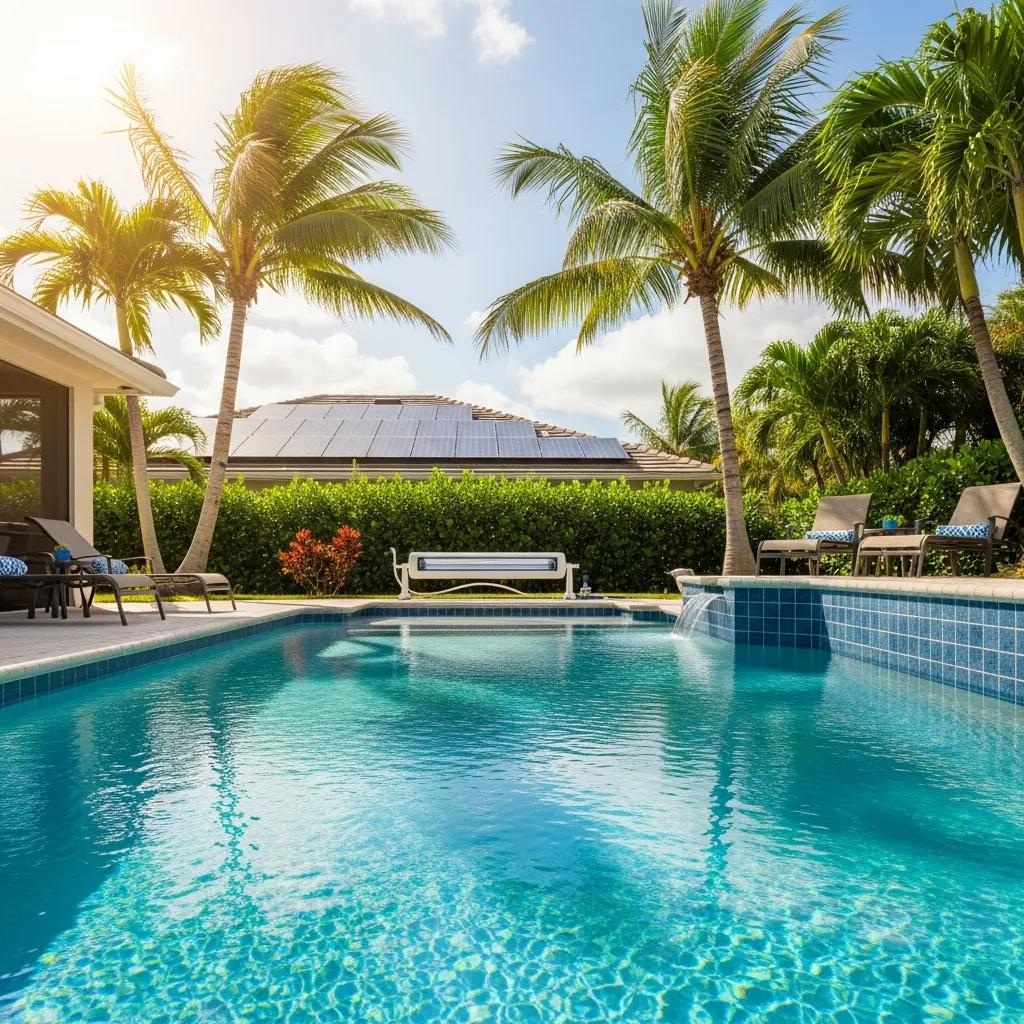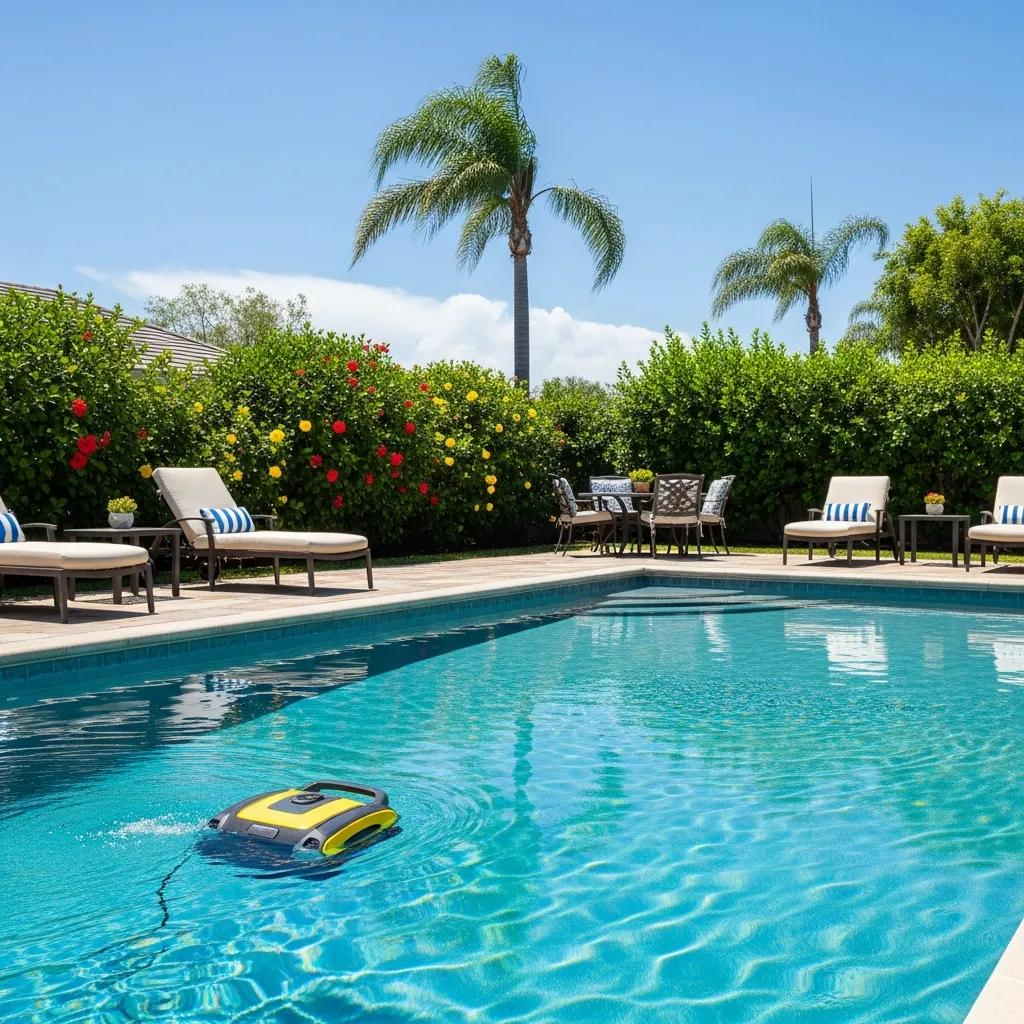
Crystal clear pool water is something every homeowner in Cape Coral wants during summer. But when the pool looks cloudy or murky, it can be frustrating and even a little concerning. Cloudy water doesn’t just ruin the appearance of your pool—it can also mean bigger problems under the surface that affect swimmer safety and the overall health of your pool system.
Understanding what causes cloudy pool water, and knowing what to look for, can save time and lead to quicker solutions. By identifying the problem early and addressing it with the right fix, you can avoid more serious issues like equipment damage or bacteria growth. Cleaner, well-balanced water means a better experience for everyone using the pool on hot summer days.
Common Causes Of Cloudy Pool Water
Pool water can go cloudy for a few different reasons. While they may seem unrelated at first, many issues come down to either poor maintenance or chemical imbalances. Knowing the most common causes makes it much easier to tackle the issue.
Here are the main sources of cloudy pool water:
1. Poor Filtration And Maintenance
Your filter’s job is to trap dirt, oils, leaves, and microscopic particles. When the filter isn’t cleaned regularly or is too old, those particles start to build up. That buildup sits suspended in the water, making it look dull or hazy.
2. Imbalanced Chemicals
When chlorine levels drop or the pH isn’t within range, the water loses its ability to stay clear. Low chlorine can’t fight off contaminants. If pH or alkalinity is off, the water may look cloudy even if other levels seem fine.
3. Environmental Debris
Pollen, dust, and leaves find their way into outdoor pools quickly. Even after being removed, the residue they leave behind can linger in the water. Rain can also throw off pH levels, and storms usually introduce more debris.
4. Heavy Pool Usage
If many people are swimming in the pool, the water chemistry changes faster. Sweat, body oils, sunscreen, and dirt all add to the water’s contaminants. If adjustments aren’t made often enough, the chlorine gets overwhelmed, and things start to look murky.
A typical example: A homeowner in Cape Coral may host several pool parties throughout the summer. Even when the pool looks clean before the events, the chlorine can quickly drop afterward. Without testing and rebalancing immediately, the water gets cloudy by the next day.
By identifying which category the issue falls into—filter trouble, chemical imbalance, outside debris, or heavy usage—you’re already a step closer to fixing the problem.
How To Diagnose Cloudy Pool Water Issues
Once you notice the water isn’t looking as clear as it should, pinpointing the exact cause will make troubleshooting easier. Each common cause has its own clues, and looking at all parts of the system can help zero in on what needs to be corrected.
Start with these steps:
- Check the Filtration System
Run the pump and observe water flow at return lines. If it’s weak or inconsistent, the filter might be clogged. Open the filter and inspect the cartridge, sand, or DE. Consider whether it’s time to clean or replace it. Some systems also have pressure gauges that indicate whether the system is working harder than normal.
- Test the Chemical Levels
Use a reliable pool test kit. Measure chlorine, pH, and alkalinity first. If one is off, there’s a good chance it’s contributing to the cloudy water. Pay special attention to low chlorine or high pH, both of which impact clarity quickly.
- Review Environmental Conditions
Think about any recent wind or rain. Even light storms can push pollen, oils, lawn debris, or dirt into the pool. Walk the yard to check for trees or plants that may have shed leaves or sap into the water.
- Consider Pool Usage And Bather Load
Has the pool been used more than usual in the last few days? Spikes in swimmers, especially during peak summer events, will introduce more contaminants. Check for higher levels of sunscreen, oils, or cloudy patches forming near commonly used steps and seating areas.
Being methodical about the inspection prevents misdiagnosis and wasted time. Many times, the cloudy issue isn’t caused by only one thing—it’s a mix of factors working together. The more you investigate, the better picture you’ll get of what needs to be addressed to bring the water back to clear.
Effective Ways To Fix Cloudy Pool Water
Once you’ve figured out the reason behind your cloudy pool water, the next step is to clear it up and keep it from coming back. Addressing the root issue will usually improve the water quickly, especially if action is taken right away. Here’s what to focus on.
- Improve Filtration and Regular Maintenance
Check if your pump is running enough hours each day. In warmer months like August in Cape Coral, running the filter for 8 to 12 hours a day is common. Clean your filter regularly and backwash or replace it as needed. If the system is outdated or undersized for your pool, it may need an upgrade.
- Adjust Chemical Levels: Chlorine, pH, Alkalinity
Low sanitizer levels are a fast way to get cloudy water. Bring the chlorine back to the right level through shocking if necessary. Test pH, which should typically stay between 7.2 and 7.6. Total alkalinity should also be within range to support the stability of the pH. Fixing these quickly brings clarity back in many cases.
- Address Environmental Debris and Clean Pool Surroundings
Use a pool skimmer to remove leaves or dirt daily. Brush the walls and floor weekly to keep invisible buildup from clouding the water. Trim trees or plants that may regularly shed into the water, and avoid using fertilizers or pest control products near the pool deck.
- Manage Pool Usage and Implement Preventive Measures
After events or heavy swim days, test the water and make adjustments the same day. Showers before swimming can reduce sunscreen and sweat entering the pool. Tossing in tennis balls after a swim party can help soak up extra oils, but this won’t replace proper chemical balancing.
Fixing cloudy water isn’t always instant, but doing the right steps in the right order leads to good results. Pool owners who stay on top of these fixes usually don’t have to deal with the problem again anytime soon.
Preventing Cloudy Pool Water In The Future
Prevention saves time, money, and frustration. Cloudy water often returns if maintenance slips or if the pool isn’t prepared for changes in weather and activity. Set up a plan you can stick with that covers all the basics.
- Test water at least twice a week during the summer
- Clean or replace filters based on manufacturer instructions
- Brush pool walls at least once a week
- Vacuum debris regularly
- Remove leaves and bugs daily
- Shock the pool after parties or heavy usage
- Maintain a cover to keep out pollen, dust, and rainwater when the pool isn't in use
Education also plays a part. Make sure family and guests understand why rinsing off before swimming helps. Avoid letting grass clippings or yard debris near the water. Little habits like these reduce what needs to be filtered or disinfected later.
Consistency makes the biggest difference. When the right habits are in place, pool chemical balancing in Cape Coral becomes easier, and the need for emergency fixes goes way down.
Achieving A Sparkling Clear Pool In Cape Coral
Keeping your pool clean and clear means working with the water, not against it. Filtration, chemicals, and use patterns all matter, and they interact more than many pool owners realize. By monitoring each angle regularly, you get ahead of problems before they show up in the water.
A sparkling pool isn't just about looks. It’s about safety, swimmer comfort, and protecting the investment you’ve made in your backyard. Cape Coral summers call for more pool time, and with the right upkeep, that time stays fun, easy, and worry-free.
Keep your pool clear, safe, and enjoyable all summer long with the help of Seemore Services, LLC. Our team provides expert support for pool chemical balancing in Cape Coral, so you can enjoy crystal-clear water without the stress. For a quick estimate or to book a service visit, please contact us today.
Customer Testimonials


Electric vs. Solar Pool Heaters: A Comprehensive Comparison
.png)
Pool Winterization Guide for Southwest Florida













